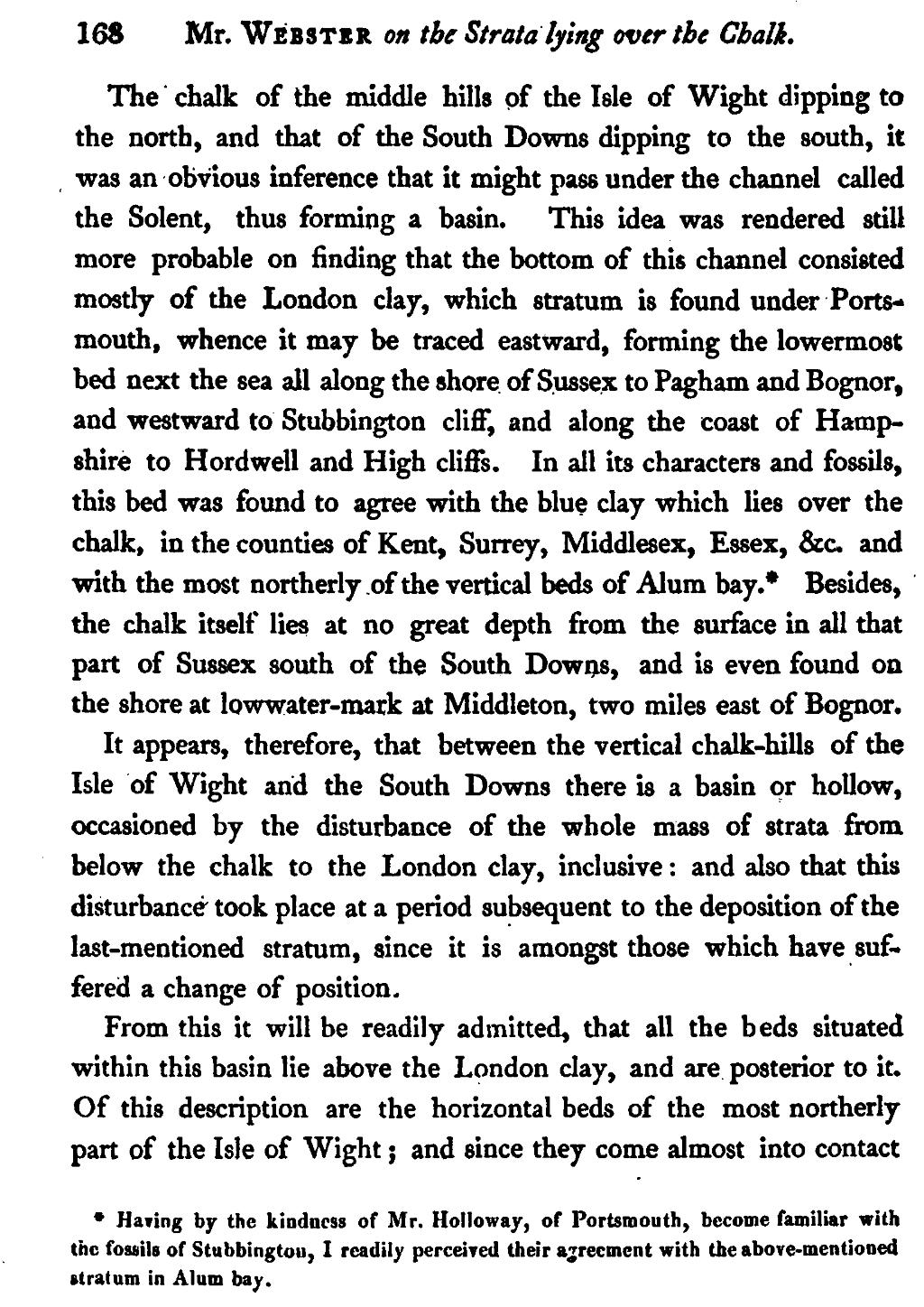The chalk of the middle hills of the Isle of Wight dipping to the north, and that of the South Downs dipping to the south, it was an obvious inference that it might pass under the channel called the Solent, thus forming a basin. This idea was rendered still more probable on finding that the bottom of this channel consisted mostly of the London clay, which stratum is found under Portsmouth, whence it may be traced eastward, forming the lowermost bed next the sea all along the shore of Sussex to Pagham and Bognor, and westward to Stubbington cliffs, and along the coast of Hampshire to Hordwell and High cliffs. In all its characters and fossils, this bed was found to agree with the blue clay which lies over the chalk, in the counties of Kent, Surrey, Middlesex, Essex, &c. and with the most northerly of the vertical beds of Alum bay.[1] Besides, the chalk itself lies at no great depth from the surface in all that part of Sussex south of the South Downs, and is even found on the shore at low water-mark at Middleton, two miles east of Bognor.
It appears, therefore, that between the vertical chalk-hills of the Isle of Wight and the South Downs there is a basin or hollow, occasioned by the disturbance of the whole mass of strata from below the chalk to the London clay, inclusive: and also that this disturbance took place at a period subsequent to the deposition of the last-mentioned stratum, since it is amongst those which have suffered a change of position.
From this it will be readily admitted, that all the beds situated within this basin lie above the London clay, and are posterior to it. Of this description are the horizontal beds of the most northerly part of the Isle of Wight; and since they come almost into contact
- ↑ Having by the kindness of Mr. Holloway, of Portsmouth, become familiar with the fossils of Stubbington, I readily perceived their agreement with the above-mentioned stratum in Alum bay.

